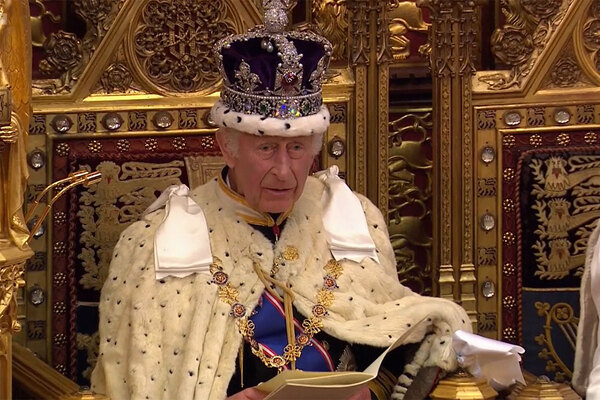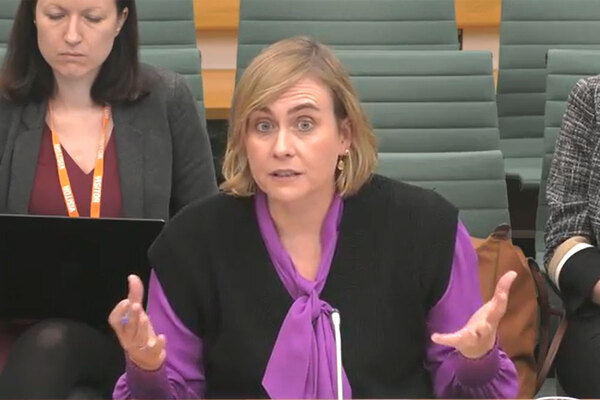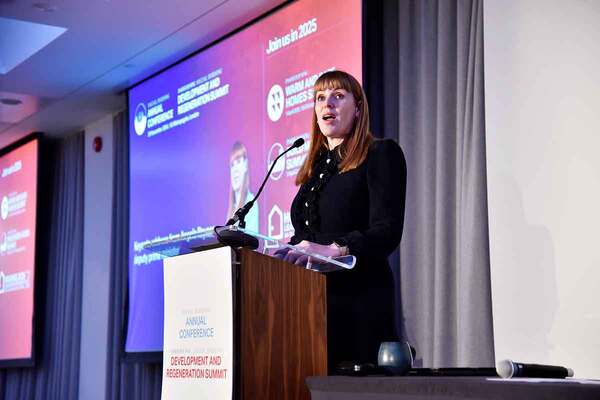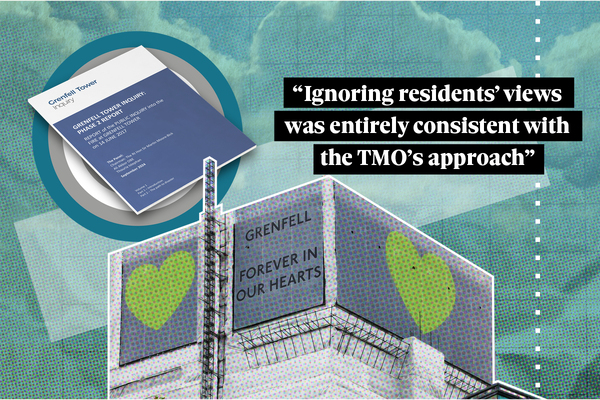You are viewing 1 of your 1 free articles
Labour must put leaseholders first, not vested interests
Labour pledged to end “feudal leasehold”. They must not betray that promise, writes Harry Scoffin, founder of campaign group Free Leaseholders
In July, Britons voted for change. A key segment of voters who helped Labour to win was people living in precarious housing, including leaseholders. Research by thinktank Labour Together highlights the cost of living as the primary concern for Labour voters, who expect noticeable change within two years. Leasehold is a cost of living issue.
Free Leaseholders is on a nationwide listening tour to understand perceptions of this government’s approach to liberating second-class homeowners. Voters living in leasehold and ‘fleecehold’ (where freeholders are locked into expensive maintenance contracts for communal areas), from Conservative-to-Labour switchers to Labour and Reform UK waverers, are anxious.
Labour started brilliantly. In July’s King’s Speech, the government of delivery pledged to “quickly” activate provisions of the Leasehold and Freehold Reform Act 2024. We would also receive a draft Leasehold and Commonhold Reform Bill in this 2024-25 parliamentary session so Labour could deliver on its manifesto commitments to end rip-off leasehold.
In September, Sir Keir Starmer became Britain’s first prime minister to tell parliament his government will end “feudal leasehold”.
However, last month, leaseholders were shocked after Matthew Pennycook, the housing minister, let slip on LBC radio that action against leasehold was now “a whole-of-parliament commitment” – not what was promised in the King’s Speech.
“Leaseholders were shocked after Matthew Pennycook, the housing minister, let slip on LBC radio that action against leasehold was now ‘a whole-of-parliament commitment’ – not what was promised in the King’s Speech”
This followed reports of Mr Pennycook speaking at a ticketed marketing event for a barristers’ chambers recognised as the pre-eminent choice for leasehold litigation. Some of its members are part of the Association of Leasehold Enfranchisement Practitioners, a trade body for industry professionals. Some have been recognised at the Enfranchisement and Right to Manage Awards and even “written legislation, given evidence to Parliament and the Welsh Assembly, and worked with the Law Commission on the leasehold reform programme”, the chambers’ website boasts.
The website goes on to say that four members are suing the government in the High Court and European Court of Human Rights to block leasehold reform, specifically the 2024 Act Labour backed in the last parliament and subsequently promised to activate speedily.
Anti-leasehold campaigners believe in the rule of law. Big Freeholders are entitled to representation. So why does this incident matter?
Lawyers specialising in leasehold have a professional and financial interest in maintaining a system of bewildering complexity that makes their expertise indispensable. Labour’s transformative commitment to a mass shift to commonhold, a fairer and simpler system that disincentivises litigation by removing the confrontational landlord-tenant relationship that bedevils leasehold, should reduce reliance on legal services.
No one doubts Mr Pennycook’s sincerity. But his participation at this event not only reinforces the chambers’ status as market leaders in leasehold, garnering them more business, but also highlights Labour’s potential blindspot to vested interests in policymaking.
A government elected on an explicit mandate to deliver “an end to the feudal leasehold system” should make strenuous efforts not to be seen as pursuing business-as-usual politics.
Would health advocates tolerate ministers rocking up at a law firm connected to Big Tobacco, to give a speech on public health, that was not filmed or transcribed for the government website?
“Leasehold’s persistence is fuelling inequality, creating second-class citizens and fostering distrust in our democracy”
As Josh Simons, Labour MP for Makerfield and a former director of Labour Together, says, a government that bills itself as one focused on delivery must be constantly mobilising against vested interests within and without the state. Ministers must be careful in dealing with so-called neutral experts that make their living from an exploitative legal regime that acts as a barrier to opportunity, throttles growth and impoverishes households.
The lesson of the last government is that transformative change doesn’t happen overnight and requires early prioritisation from Number 10. Leasehold was left too late in the day by the Tories. Michael Gove’s ambition to abolish the system when he was housing secretary was watered down because time and political capital ran out.
Sir Keir risks repeating history. The political benefits of this pro-homeownership, anti-inequality agenda won’t be realised if leaseholders and fleeceholders continue to be looted for up to five more years. And good luck to the new victims being created by the 1.5 million new-homes target.
In difficult financial times, popular policies that won’t plunder the Treasury are hard to find. But this is one.
The prime minister has a first-rate legal mind. It is within his ability – and power – to dismantle England’s discriminatory leasehold system, which robs people of dignity in their homes and monetises them ruthlessly.
Leasehold’s persistence is fuelling inequality, creating second-class citizens and fostering distrust in our democracy.
If Labour, the party that claims to be fighting injustice, cannot get rid of something so blatantly unfair and rejected by the public, what is it good for?
Harry Scoffin, founder, Free Leaseholders
Sign up for our daily newsletter
Already have an account? Click here to manage your newsletters













